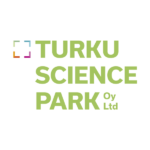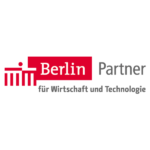Estonian technology companies form a cluster for new health-tech developments
40 innovative health technology and medicine companies in Estonia established a cluster called Estonian Connected Health Cluster (ECHC). The main aim of the cluster is to use health data for launching new products or services, to prevent health problems, raise the quality of life and increase exports in global markets.

Tallinn Science Park Tehnopol gathered the common interests and goals of different health tech, medicine and ICT companies, universities, medical institutions and support organizations. All members of the ECHC are willing to contribute their intellectual property, skills and resources to create new products and services that can be used for improving people´s health. Common cluster activities are also helping the members to introduce new technologies and products globally and to increase the export potential.
Founder of ECHC, Head of Business Development Unit in Tallinn Science Park Tehnopol, Külle Tärnov said that Estonia is already at the forefront in Europe when it comes to disease specific information management and usage of the benefit of the patients. “Good examples are Estonia´s e-medical services like X-Road and ID card solutions used for handling delicate data for better treatment of the patients. Today we have plenty of health related data that is constantly collected by mobile devices and applications, but is not used systematically to maintain public health quality and prevent diseases. We would like to concentrate on this data to run R&D processes and come up with the global market potential products or services,” said Külle Tärnov.
“Modern people are more willing to trust and give out their personal health information in order to obtain the essential tips or skills for improving the quality of their life. Not to mention that there are plenty of health-related applications that combine the information about your sleeping, exercising or communicating habits. This data can be used to develop highly personalized services,” added Tärnov.
Companies are seeking for useful cooperation points that help to implement their in-house potential for product development purposes.
“Cognuse is developing rehabilitation software that helps patients to regain their cognitive abilities after brain trauma or stroke. This product solves only one problem for very specific group of patients. But the usage area of our solution can be much wider than that. In cooperation with companies and hospitals we gain better access to the needs of potential target groups and are able to develop new and more effective solutions for rehabilitation patients,” said the CEO of Cognuse, Andres Mellik.
The need for more interactive cooperation is identified by the manager of Viljandi Hospital, Priit Tampere. “We would like to describe the common problems and needs that the hospitals are facing to private sector companies, so they could develop solutions. All the hospitals are ready and willing to use new technologies and services that can be used for providing best possible treatment to the patients.”
Estonian Connected Health Cluster combines Tallinn University of Technology, University of Tartu; health technology companies like Cognuse, LabToWellness, Asper Biotech, Icosagen, Kevelt, and ICT companies like Estonian Telecom, Affecto and Nortal. ECHC is a member of European Connected Health Alliance and the ScanBalt BioRegion network.
Külle Tärnov
Tallinn Science Park Tehnopol
Tel: +37256800221
E-mail:
ScanBalt News
17 April 2024
COBIOE project consortium opens an interconnection platform for the European biomanufacturing sector
12 March 2024
19th National Conference on Health Economy 2024 | 30-31 May 2024 | Mecklenburg-Vorpommern, Germany














